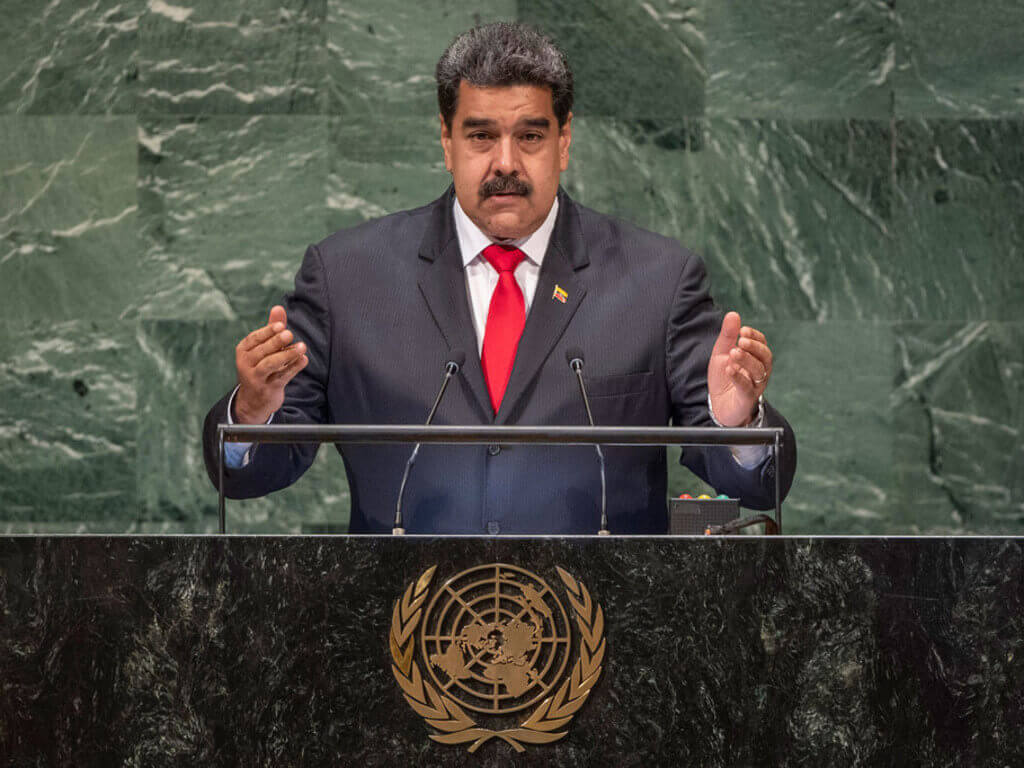The United Nations’ (UN) Special Rapporteur on the negative impact of unilateral coercive measures on the enjoyment of human rights, Alena Douhan, will visit Venezuela in February 2021 to respond to President Nicolás Maduro’s request for an investigation into the impact of sanctions by the United States (US) on the South American country.
Douhan and her team will be tasked with collecting data and information as well as meeting with government authorities, political opposition, rights groups, and other private and public entities in order to gain a comprehensive understanding of the situation. She will then present her findings in a report that will be delivered to the UN Human Rights Council (UNHRC) during the body’s 48th session in September 2021.
In fact, the sanctions imposed by Washington on Caracas technically run contrary to international law, given that the UNHRC passed a resolution (called the “Human Rights and Unilateral Coercive Measures” in September 2014 that asserts that such “coercive measures” contravene the spirit of humanitarian law and the UN charter.
The US has levied various sanctions against officials within the Maduro administration as well as the state-owned oil company PDVSA, which has severely bottlenecked Venezuela’s economic output. These sanctions have resulted in oil production taking a severe downturn in Venezuela, despite it having the world’s largest oil reserves. Thus, Venezuela is now forced to depend on importing gasoline from countries like Iran.
The US first placed sanctions on Venezuela’s oil industry in 2017 and then imposed a complete embargo in January 2019, which was then expanded to secondary sanctions on any companies or states doing business with Venezuelan state-owned companies. Consequently, PDVSA’s oil output fell from 1.911 million barrels per day (bpd) to just 796,000 bpd in 2019. All of this has pushed Venezuelan exports to their lowest levels in almost 80 years, which has left the already embattled and cash-strapped country struggling to meet the basic nutritional and medicinal needs of its population.
A report by Luis Oliveros from the Washington Office on Latin America (WOLA) estimates that US sanctions have cost Venezuela between $17 billion and $31 billion in revenue. This has impacted the ability both the public and the private sector to import goods, with the value of average monthly public imports falling by 46% in 2019 to $500 million and by 50% in 2020 to $250 million.
Aside from punishing the government, this has also adversely affected the work of rights groups, humanitarian organisations, and private companies, who have had their accounts closed by banks and financial institutions who are now “over-compliant” with US sanctions so as to escape any possible punishment.
Sanctions have also gutted the country’s public health system and undercut the Maduro administration’s efforts to contain the coronavirus pandemic. The American economic blockade has barred Venezuela from funding the World Health Organisation (WHO)-led COVAX initiative, which Health Minister Carlos Alvarado says has prevented Venezuela from accessing vaccines through the initiative.
Although Venezuela’s state airline Conviasa has transported roughly 1,300,000 kilograms in air cargo from China and Russia to bring in food and medical supplies and equipment, this has not done enough to alleviate the pressure on a highly understaffed and under-resourced public health system.
This has led to a mass exodus—over five million Venezuelans have emigrated from the country due to rising inflation, unemployment, and crime, and fuel, medicinal, and food shortages.
Against this backdrop, Venezuela has repeatedly referred to US sanctions as “economic terrorism”. Furthermore, Foreign Minister Jorge Arreaza has called for an International Criminal Court (ICC) investigation into American officials for committing “crimes against humanity”.
At the same time, the Maduro administration has also repeatedly called on the UNHRC to launch a similar investigation, arguing that the sanctions break international law, principles, and guidelines. The UN, for its part, has agreed with such characterisations. In January 2019, UN human rights export Idriss Jazairy said, “I am especially concerned to hear reports that these sanctions are aimed at changing the government of Venezuela,” adding, “Coercion, whether military or economic, must never be used to seek a change in government in a sovereign state. The use of sanctions by outside powers to overthrow an elected government is in violation of all norms of international law.” He added that the sanctions are “effectively compounding the grave crisis affecting the Venezuelan economy, adding to the damage caused by hyperinflation and the fall in oil prices”.
Nevertheless, the UN has also taken aim at the Maduro administration for inviting this chaos. In July, the UN High Commissioner for Human Rights, Michelle Bachelet, submitted a 15-page document on Venezuela’s justice system, as commissioned by the UN Human Rights Council (UNHRC). The document outlines how the justice system in the country has been “considerably undermined”, which has paved the way for ‘impunity’ and human rights violations, such as “deprivation of life, enforced disappearance, torture and sexual and gender-based violence involving members of the security forces”.
All this being said, it is unlikely that the US will bow under the pressure of an impending UN investigation, given that the Treasury Department’s Office of Foreign Assets Control (OFAC) announced just last Wednesday that it had extended a ban PDVSA bonds until July 2021.
UN Special Rapporteur to Investigate Impact of US Sanctions on Venezuela
US sanctions on officials within the Maduro administration and on the nation’s oil industry have crippled Venezuela’s economy, leading to fuel, food, and medical shortages and mass emigration.
December 29, 2020

IMAGE SOURCE: CIA PAK / UN PHOTOVenezuelan President President Nicolás Maduro
